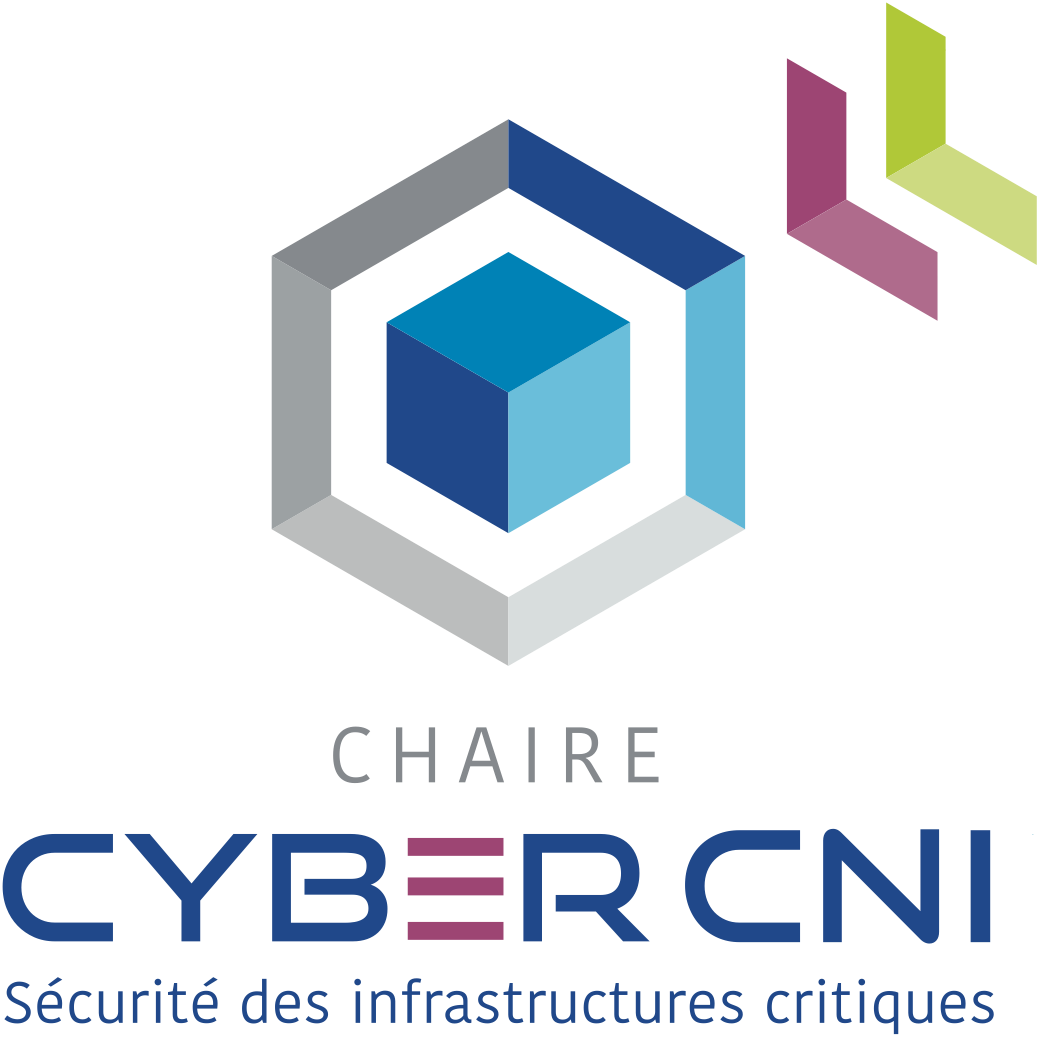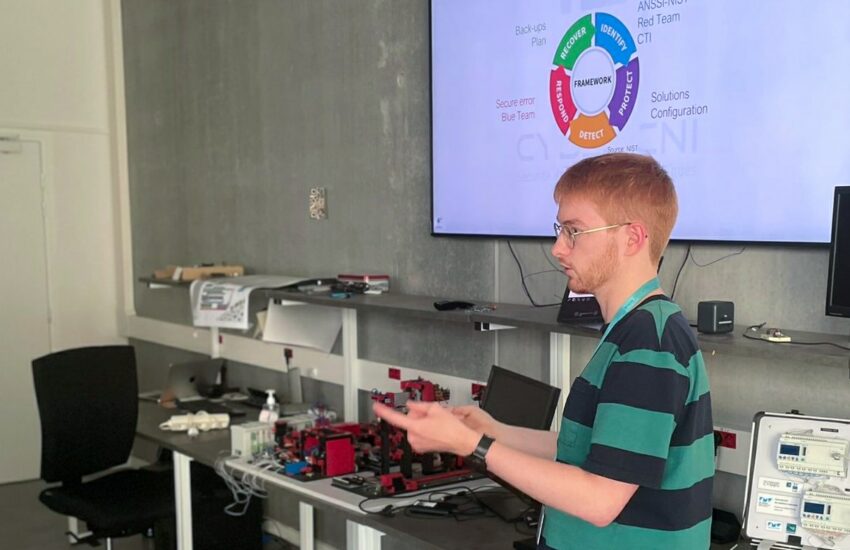[TALK33] 13.12.2023 Revisiting Wireless Security – Muriel Medard (MIT)
On Fri, Dec 13th, 2023, 2pm CET, we welcome Muriel Medard from the Massachusetts Institute of Technology (MIT) on “Revisiting Wireless Security”.
You are cordially invited to join the free live stream on youtube and LinkedIn! Please share the link https://talk.cybercni.fr/33 with your interested friends!
Trailer: https://youtu.be/Nx1lpDqvJOE
LinkedIN Event: https://www.linkedin.com/events/7140092207578980352
Facebook Event: https://www.facebook.com/events/267005139706853/
Youtube: https://www.youtube.com/watch?v=crqWKLsbUVk&list=PLdftPKA9mTfaDJxqwexil2mPhUFIA9ITd&
Stream redirect (for every edition): https://TALK.cyberCNI.fr/stream
Newsletter with invitations: Subscription on https://TALK.cyberCNI.fr
Help us spreading the news
The best talks are those with an interested diverse audience! Therefore, please use the following media to spread the news in your networks:
Thank you!
Abstract
Wireless security has progressed from an area of specialized interest to a matter of discussion in the mainstream press. The attention the issue receives is in great part due to the increased societal reliance on wireless connectivity, be it by the advent of 5G, or by the heavy use of WiFi for remote work in the last couple of years. On the technical side, the confluence of multiple factors has made the topic increasingly complex. First, the heterogeneity of manufacturers and technologies, ranging from traditional mobile systems to WiFi and satellite, render a centrally orchestrated security solution impractical. Second, the introduction of new technologies, particularly at very high frequencies, present new settings in terms of propagation and associate vulnerabilities. Third, traditional wiretap approaches are not robust to recent security analysis based on guessing attacks. Fourth, the erosion of traditional cryptographic schemes, such as RSA, by quantum computing, coupled with the rise of the possibility of such quantum computation, imply that reliance on traditional data hiding is increasingly fraught. Finally, the widespread use of federated learning entails that a highly connected, omnipresent wireless ecosystem also presents new and complex risks in terms of privacy.
In this talk, we argue that the many of the above developments can, when exploited well, be seen not as vulnerabilities but as techniques to enhance security. Heterogeneous settings permit, through network coding, light-weight, in terms of computational and rate overhead, post-quantum secure operation of networks without central coordination. Leveraging these post-quantum schemes, transmissions at high frequencies can be fashioned to obtain absolute security, which does not rely on statistical notions of signal to noise ratios as in conventional wiretap schemes. Guessing random additive noise decoding (GRAND™) provides the ability to incorporate encryption into error-correcting coding directly. Privacy management even in distributed, uncertain settings, can be enhanced by combining machine learning techniques with coding.
Watch the trailer linked above!
Muriel Medard
Muriel Médard is the NEC Professor of Software Science and Engineering in the Electrical Engineering and Computer Science (EECS) Department at MIT, where she leads the Network Coding and Reliable Communications Group in the Research Laboratory for Electronics at MIT and Chief Scientist for Steinwurf, which she has co-founded. She obtained three Bachelors degrees, as well as her M.S. and Sc.D, all from MIT. Muriel has supervised over 40 master students, over 20 doctoral students and over 25 postdoctoral fellows. Muriel currently serves as the Editor-in-Chief of the IEEE Transactions on Information Theory and served previously as Editor in Chief of the IEEE Journal on Selected Areas in Communications. Muriel was elected president of the IEEE Information Theory Society in 2012, and serves on its board of governors, having previously served for eleven years. She has over sixty US and international patents awarded, the vast majority of which have been licensed or acquired.
About the Massachusetts Institute of Technology (MIT)
The Massachusetts Institute of Technology is a private research university in Cambridge, Massachusetts. Established in 1861, MIT has played a significant role in the development of many areas of modern technology and science.In particular, the Department of Electrical Engineering and Computer Science is the largest department at MIT, annually preparing hundreds of graduate and undergraduate students for career leadership in fields such as academia, research, and the high-technology industry. Part of both the Schwarzman College of Computing and the School of Engineering, MIT EECS consistently tops the U.S. News & World Report and other college rankings and is widely recognized for its world-class faculty, who provide outstanding education and conduct innovative and award-winning research.
Talk.cybercni.fr
The Cyber CNI Lecture Series is a free monthly event that typically takes place on the last Wednesday of the month from 2pm to 3h30pm CET.
The standard event consists of a 45-minute expert presentation followed by a 45-minute discussion. The special fireside talks emphasize more the discussion and only have a short impulse presentation at the beginning.
The Cyber CNI Speaker series aims to raise awareness and understanding of cyber security issues among all audiences. It aims to enable an ongoing dialogue between experts from industry and academia and the general public (citizens, families, small and large businesses, public organizations, etc.). All of us are concerned.
The events are broadcast live on Youtube (https://talk.cybercni.fr/) and LinkedIn, allowing worldwide remote participation – including a tool to participate in the discussion.
You can add the event calendar via ICS, webcal, HTML.
How the digital transformation is changing our lives
The COVID-19 pandemic has shown all of us the benefits of information technology. It allows us to work at a distance, to live at a distance, and most importantly, to keep in touch at a distance – with younger and older people, those closest to us, and even make new contacts.
Our society relies more and more on information and operational technologies. Examples include water, energy, heat and cooling supply, communications, healthcare, production and processing of goods, transportation, national security, banking, research and education, and food production.
What all these areas have in common is that they make intensive use of networked distributed computer systems. These systems can be attacked in many ways. This is no longer just a problem for computer “pros” because computer systems are essential to all of us. The effects of “cyber-attacks” range from power outages to the collapse of the health care or banking sectors.
Program and registration: https://talk.cybercni.fr/
- [T40] Software multi-tenancy on micro-controllers: enhancing security with TinyPART toolkit – Chrystel Gaber (Orange), Gilles Grimaud (U Lille), Emmanuel Baccelli (INRIA) - October 28, 2024
- [T37] Cryptocurrency Innovations: EcoMobiCoin for Green Behavior & LCoin for Local Economies – Pascal Lafourcade - July 31, 2024
- [T36] Dynamic Cybersecurity Risk Management with Responsible AI Practice for Enhancing Security and Resilience of Digital Infrastructure – Shareeful Islam - July 22, 2024








